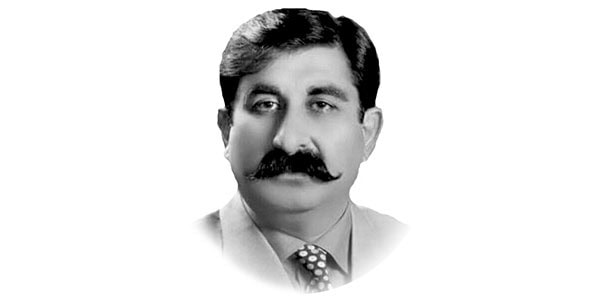Polarised Pakistan
PAKISTAN is experiencing a unique magnitude of political crises. Here political polarities are rising and have reached a stage where there seems almost no scope for compromise through dialogue.
Imran Khan, other than when it suits him and his party, has always given priority to a confrontational style of politics rather than normal parliamentary democracy.
Because of repeatedly and unabashedly displaying a personal degree of hatred for the previous opposition, he has produced a profoundly split society and this fact has expectedly started to hit home.
It is the inability of the ruling elite, their diverse regional background, personal vested interests in power grabs and for this purpose, engineering of political manipulation to wreck governments and form a new one.
Factions of the same elite under different party platforms have always kept displacing one another from power endlessly.
Political elites actually played against one another as puppets by the civil and military bureaucracy.
This is too charitable a perspective to excuse the political elite and their never-ending factionalism which continues to this day.
Pakistan has been a polarized polity and consequently, a divided society since its independence 75 years ago which is being celebrated today like every year.
It started with the serious differences among the political elites of the country over the character of the state, quality of federalism, relationship between religion and governance and ideological choices.
One may argue that it could be a normal process in a diverse nation’s struggle to take a definite direction and achieve stability in the formative phase.
But one wonders why it would take nine years in writing the first constitution and then its annulment within three years without any general elections or transfer of power happening under it.
Generation after generation, coming from the same feudal-tribal social background, Pakistan’s political elite have promoted political values that run counter to nation and state-building.
If they had played by the rules, demonstrated political solidarity on principles and forged a political consensus, the democratic norms and convention would have gelled over time.
The ouster of (former) Premier Imran Khan, despite the fact that he had the largest party in Parliament with 156 members losing power to a motley group of political factions, the closest second having only 86 members and forming the new government, speaks a great deal about persistent polarization.
The sad story of Pakistan is that naked factional elite interests have shaped these power plays, often by seeking friendly intervention from the powerful judicial and security institutions.
It is a continuation of the same historical pattern, only the main characters have changed. Each successive confrontation has been more severe than before.
The ongoing clash looks like political warfare with no-holds-barred, barely covered with a fig leaf of constitutionality.
This has been in the making for the past nine years when Imran Khan challenged the fairness of the 2013 elections.
The others, in return, questioned the accuracy of the 2018 vote and vowed to oust him from power by forming a joint alliance, launching street demonstrations, and finally succeeding by winning over dissidents from his party and coalition partners and moving successfully a vote-of-confidence motion in the National Assembly.
The normal and expected role of the political elite in any form of political system is working toward stability, order, national unity, solidarity and continuity along with ensuring progress, social and economic development.
The Pakistani elite have done quite the opposite: polarizing and dividing people along ethnic, religious, ideological and narrow political lines.
Generation after generation, coming from the same feudal-tribal social background, they have promoted political values that run counter to nation and state-building in ethically and demographically diverse society.
Ultimately, it is the rapacious character of the Pakistan ruling classes, their low commitment to rule of law and accountability and access to power as means of material benefits that have stunted the growth of democracy.
In such conditions, the military has assumed the role of guardian of the state, and has regularly managed political conflicts erupting over power struggles among the elite.
The present polarization between the PTI and the rest of the political parties and factions is not new.
Imran Khan has instantly decided to engage in popular agitation against what he calls an imported government by weaving a narrative of foreign conspiracy and accusing some as traitors.
His decision to resign from the National Assembly en-masse is stunning and may prove to be an adventurous path.
He will be doing politics now not in Parliament but on the street, rousing public anger demanding fresh elections.
The sudden change of heart by coalition groups supporting Imran Khan and the open betrayal of members of his party have raised many troubling questions about the neutrality of powerful state institutions.
This adds another dimension to the political conflict playing out in the media, civil society and the masses.
The way political groups disseminate, the hatred has made politics volatile and political polarities high.
The PTI and the PML-N are both instigating political polarities. The trouble with discussing political opposites is that it is impossible to avoid making them into absolutes, and this is even more so when we are dealing with constantly changing movements and definitions.
It has to be noted that the decisions of political parties have a significant influence on a nation and its destiny. These decisions and their polarizing effect cannot be avoided.
—The writer is editor, book ambassador political analyst and author of several books based in Islamabad.







